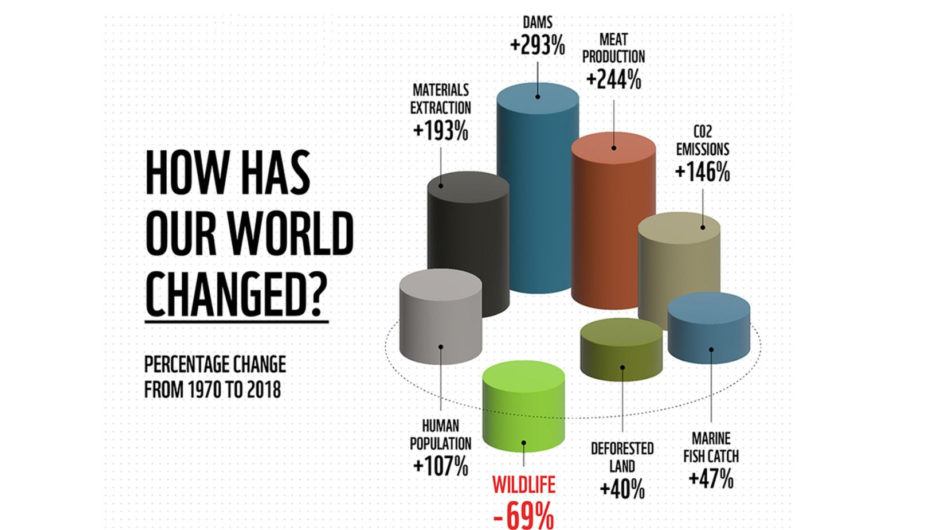The report shows that global wildlife population sizes have dropped by an average of 69% in just under 50 years.
The climate and nature crisis is already upon us. It is no longer a future, faraway threat.
But the solutions do exist. We’ve made big changes before, and we can do it again. Together, we can show we need urgent action on climate and nature. Check out the WWF video to learn what needs to change and why.
WILDLIFE POPULATIONS PLUMMET BY 69%
The Living Planet Report 2022 is WWF’s most comprehensive study to date of trends in global biodiversity and the health of our planet. The latest flagship publication reveals global wildlife populations have plummeted by 69% on average since 1970. The staggering rate of decline is a severe warning that the rich biodiversity that sustains all life on our planet is in crisis, putting every species at risk – including us.
The climate and nature crisis is not only an environmental issue, but an economic, development, security, social, moral and ethical issue too. Our world’s most vulnerable people, places and wildlife – and those least responsible for the climate and nature crisis – are at greatest risk, and already suffering.
While conservation efforts are helping, urgent action is required if we are to reverse the loss of nature this decade. We all have a role to play in building a better future for our wildlife, our climate and for all of us.
THE CLIMATE AND NATURE CRISIS IS ALREADY UPON US
This year alone, we’ve seen our forests burning, our rivers and oceans polluted, record temperatures hit across the world, thousands of homes lost to extreme flooding, wildfires and rising sea levels, and food supplies decimated by droughts. The evidence is clearer than ever – we are living through the dual crises of catastrophic nature loss and climate change, driven by the unsustainable use of our planet’s resources. Unless we stop treating these emergencies as two separate issues, neither problem will be addressed effectively.
HOW HAS OUR WORLD CHANGED?

A lot has changed in the past 50 years. How we travel, work and produce our food. How we use our land, rivers and seas and build our infrastructure. How we generate our energy and manage our waste. All this change has an impact and consequences for those same natural resources that our wildlife, and all of us, depend on too.
FRESHWATER POPULATIONS HIT THE HARDEST
Monitored freshwater populations have dropped by an average of 83% since 1970, more than any other species groups. Habitat loss and barriers to migration routes account for around half the threats to these populations.
We know that you are aligned with our vision to look after our natural resources — oceans, land and wildlife — so we can continue to benefit from food, water and a healthy climate.
Source: WWF




Leave a Reply
You must be logged in to post a comment.